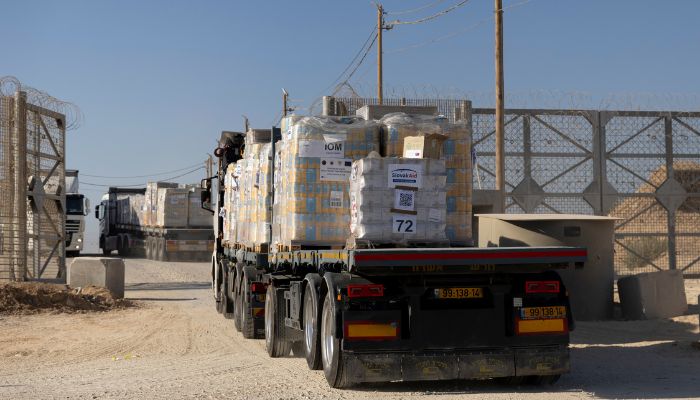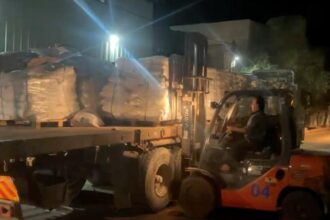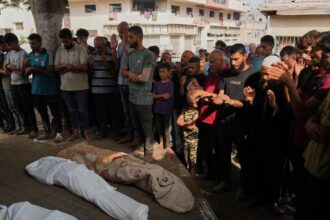In a devastating development that further exacerbates Gaza’s humanitarian crisis, the World Food Programme has temporarily suspended food deliveries after at least 112 Palestinians were killed during a chaotic aid distribution near Gaza City. The Thursday incident, which occurred as desperate civilians rushed to access critically needed supplies, marks one of the deadliest episodes in months of food insecurity across the war-torn region.
According to Gaza health officials, Israeli forces opened fire on crowds gathered around aid trucks in northern Gaza, while Israeli military authorities claim their troops shot at individuals who approached them in a threatening manner during the distribution. The conflicting narratives highlight the increasingly dangerous conditions surrounding humanitarian operations in the enclave.
“This catastrophic situation demonstrates how the mechanisms for aid delivery in Gaza have completely broken down,” said Cindy McCain, Executive Director of the World Food Programme. “We cannot effectively deliver assistance in such conditions without risking more civilian lives.”
The suspension affects an area where the United Nations has repeatedly warned of imminent famine. Recent assessments indicate that nearly 80% of Gaza’s 2.3 million residents are now entirely dependent on humanitarian assistance, with acute malnutrition rates climbing rapidly among children under five.
The international community has responded with urgent calls for accountability and the restoration of aid pathways. UN Secretary-General António Guterres described the situation as “totally unacceptable” and demanded an independent investigation into the deaths. Meanwhile, humanitarian organizations report that existing food stocks within Gaza could be depleted within days if deliveries aren’t resumed.
Jordan and Egypt have announced plans to conduct emergency airdrops of food and medical supplies, though experts question whether such methods can adequately address the scale of need. Previous airdrops have resulted in limited distribution and occasionally caused injuries when packages landed in populated areas.
For residents like Mahmoud Alwan, a father of four in northern Gaza interviewed by satellite phone, the aid suspension represents yet another life-threatening challenge. “We are already sharing one meal a day between all of us,” he said. “Without these deliveries, I don’t know how we will survive another week.”
The incident underscores the deteriorating coordination between Israeli authorities and humanitarian agencies, with accusations from both sides about inadequate security provisions and delivery protocols. International legal experts have increasingly characterized the restriction of humanitarian access as a potential violation of international humanitarian law.
As diplomatic efforts intensify to restore aid channels, the fundamental question remains: can the international community establish genuinely secure humanitarian corridors in an active conflict zone, or will Gaza’s civilian population continue to bear the deadly consequences of this aid delivery breakdown?

























